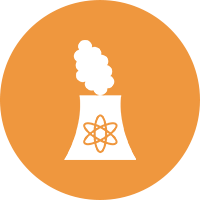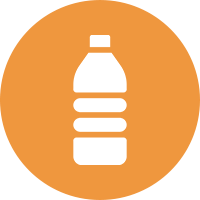Utility Tax Solutions

Often commercial and industrial clients do not take the time to understand the tax codes for their industry or region and assume that only non-profits qualify for tax savings and refunds. Clients may be leaving money on the table and the longer this goes unnoticed, the more refund dollars are potentially lost forever due to the associated statute of limitations.
During the initial discovery phase with a new client, SIMPLICITY takes the time to understand the company’s operations and reviews energy bills to look for potential discrepancies and opportunities. If a client uses more than 50% of their power consumption for a qualified manufacturing process, they may qualify for tax savings using a “Predominant Use Study”. This applies to both deregulated and regulated service territories throughout the United States.
When potential tax savings are identified, SIMPLICITY helps the client to commission a “Predominant Use Study” to receive the appropriate engineering report to meet the state’s requirements and to eliminate the associated tax. Furthermore, we assist clients in requesting these tax refunds for prior years as well, up to the maximum allowed by law.
What is Rule §3.295?
This rule in the Texas Administrative Code deals specifically with sales tax exemptions for natural gas and electricity used in certain activities, like manufacturing (our barbecue sauce!), agriculture (growing those juicy tomatoes!), and a few others.
Think of it like this: Imagine a cowboy hat. If the hat is mainly used to keep the sun off your face (exempt purpose), then the whole hat is considered exempt, even if you occasionally use it to hold some wildflowers (taxable purpose).
In Texas, Rule §3.295 of the Texas Administrative Code pertains to the sales tax exemption on natural gas and electricity used for residential purposes, agriculture, manufacturing, and other qualifying activities, where the exemption is determined based on the "predominant use" of the energy source under a single meter, meaning if most of the usage is for an exempt purpose, the entire usage is typically exempt from sales tax; this often requires a "predominant use study" to be conducted to verify eligibility.
Key points about Rule Section 3.295:
- Exempt uses:
Natural gas and electricity used for residential purposes, agricultural operations, direct use in manufacturing processes (including powering exempt manufacturing equipment), timber operations, and certain utility company operations are generally exempt from sales tax under this rule. - Predominant use principle:
If a single meter is used for both taxable and exempt purposes, the entire usage is considered exempt or taxable based on which use is "predominant". - Manufacturing exemption details:
To qualify for a manufacturing exemption, businesses must demonstrate that the gas or electricity is directly used in the manufacturing process, such as powering equipment that directly processes tangible personal property for sale. - Utility study requirement:
To establish a predominant use for exemption, businesses often need to conduct a utility study with a qualified engineer, detailing the usage of each piece of equipment and the percentage of energy used for exempt activities - Electricity is exempt from sales and use taxes when the electricity is used for specific manufacturing or production purposes. You may be eligible for a sales tax exemption if you are in these businesses:
Industry Sectors
Chemicals
Consumer Goods
Food & Beverage
Healthcare
Chemical Plants
Portfolios
Hospitality
Mining & Metals
Pulp & Paper
Real Estate & Property
Plastics
Manufacturing
Restaurant
Retail
Technology
Data Centers
Commercial Real Estate


















